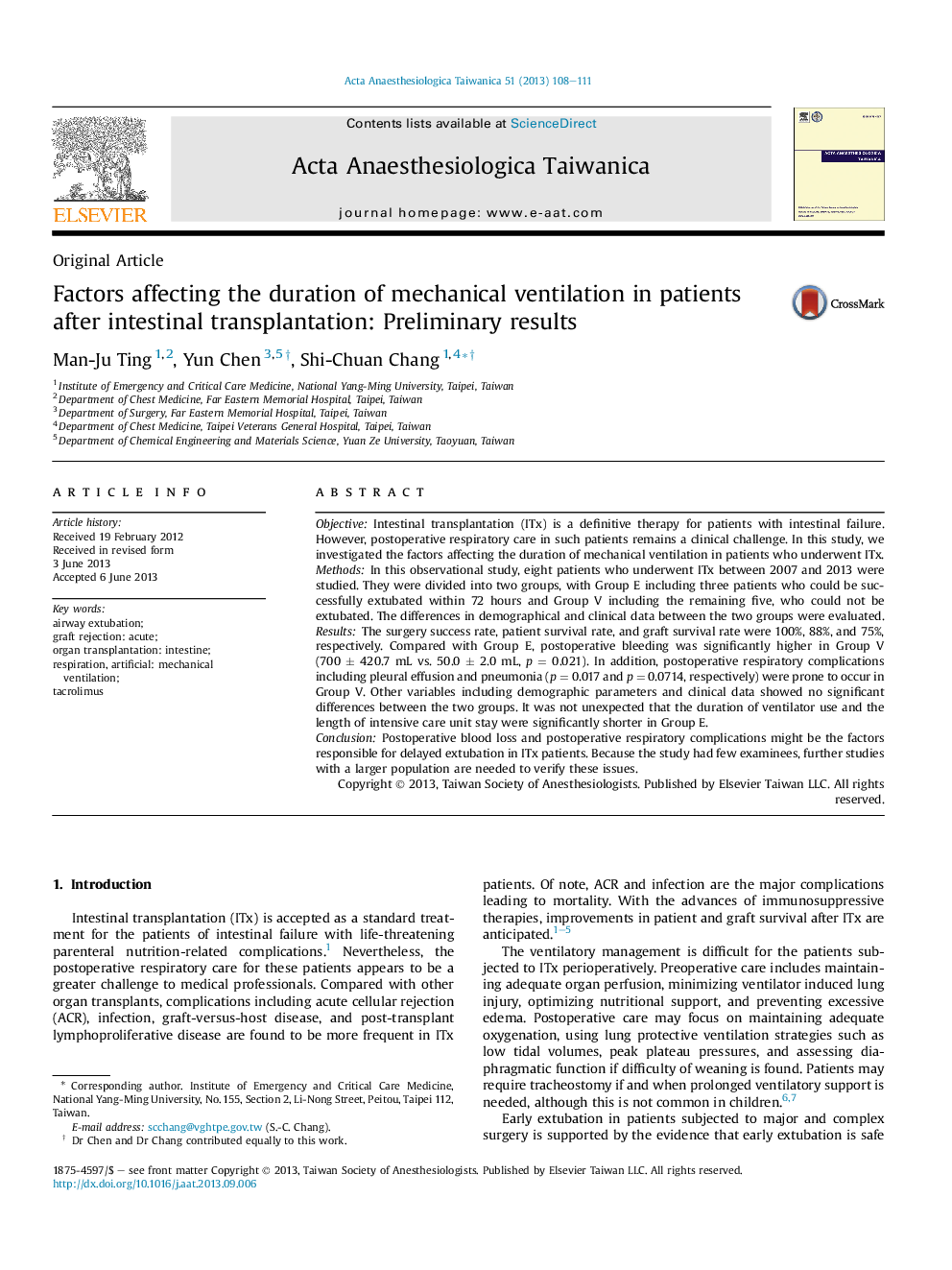| Article ID | Journal | Published Year | Pages | File Type |
|---|---|---|---|---|
| 2741474 | Acta Anaesthesiologica Taiwanica | 2013 | 4 Pages |
ObjectiveIntestinal transplantation (ITx) is a definitive therapy for patients with intestinal failure. However, postoperative respiratory care in such patients remains a clinical challenge. In this study, we investigated the factors affecting the duration of mechanical ventilation in patients who underwent ITx.MethodsIn this observational study, eight patients who underwent ITx between 2007 and 2013 were studied. They were divided into two groups, with Group E including three patients who could be successfully extubated within 72 hours and Group V including the remaining five, who could not be extubated. The differences in demographical and clinical data between the two groups were evaluated.ResultsThe surgery success rate, patient survival rate, and graft survival rate were 100%, 88%, and 75%, respectively. Compared with Group E, postoperative bleeding was significantly higher in Group V (700 ± 420.7 mL vs. 50.0 ± 2.0 mL, p = 0.021). In addition, postoperative respiratory complications including pleural effusion and pneumonia (p = 0.017 and p = 0.0714, respectively) were prone to occur in Group V. Other variables including demographic parameters and clinical data showed no significant differences between the two groups. It was not unexpected that the duration of ventilator use and the length of intensive care unit stay were significantly shorter in Group E.ConclusionPostoperative blood loss and postoperative respiratory complications might be the factors responsible for delayed extubation in ITx patients. Because the study had few examinees, further studies with a larger population are needed to verify these issues.
